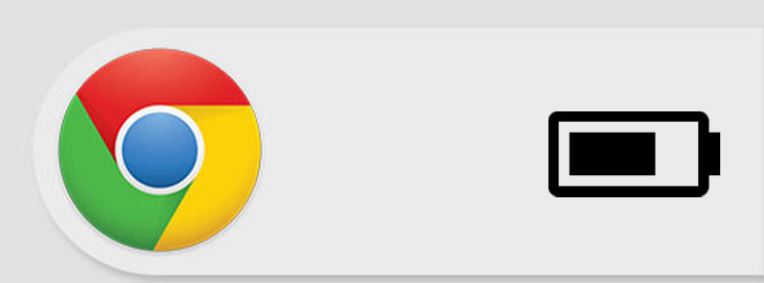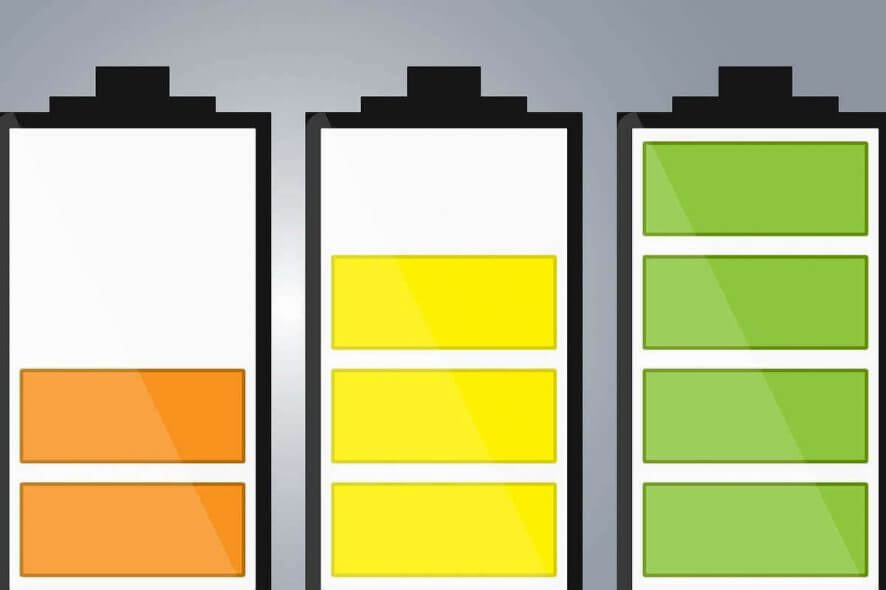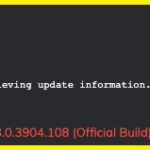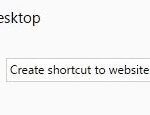- Google is starting to introduce a new feature in Chrome that should prevent the browser from slowing down online ads.
- Chrome also interferes with ads that drain the battery or use too much data.
- Google Chrome will continue to run in the background even after all Chrome windows are closed.
- Download and install the software.
- It will scan your computer to find problems.
- The tool will then correct the issues that were discovered.
It has been discovered that heavy battery drain can be fixed with ease by the Chromium browser team at Google.
Google has already introduced several measures to improve Chrome’s performance, but it’s not always Chrome’s fault when it has poor performance. Chrome has developed a reputation for being a fairly resource-intensive browser over the years.
There is no denying the fact that Chrome drains the battery. Can there be a way to reduce Chrome’s battery usage? Microsoft tells us their plans. Read the post for more information.
In addition to slowing down the browser, Google has introduced a new feature in Chrome that blocks ads that use too much data or drain the battery.
For desktops, laptops, and cell phones, these changes are good news. As a Chrome user, you’ll notice ads will not slow down the web as much, laptops and cell phones will have longer batteries, and you’ll notice less data consumption if you’re on a metered internet connection.
Researchers at Google throttled the timers for a minute-by-minute access in tests.
In contrast, Chrome will significantly drain your battery life if you frequently run your laptop on battery power.
Obviously, Microsoft now includes Chromium in its code base, and one of its commits is aimed at improving battery life through changes to the way Chrome caches videos.
As we reported a week ago, Microsoft is finally coming up with a potential solution for Chromium-based browser battery drain. According to Microsoft, media caching is the primary cause of battery drain. After Microsoft submitted a change, the Chromium team approved it, and Google implemented a flag in Chrome Canary to limit disk activity during media playback in response to their discovery.
Has anyone ever investigated and tested a little, which browser eats on average how much battery and whether there are enormous / significant differences between the individual Windows browsers? I have briefly considered Brave, Vivaldi, Edge and Firefox and have undergone a one-hour browsing session with each of them. I did not remove all add-ons and didn’t create a own clean profile, but I just wanted to see how the battery life differs in my user behavior. I came to the conclusion with my non-professional test that the browsers actually all consume more or less the same amount. Per hour they consumed between 12 to 16%. With Firefox 16%, Brave 15%, Vivaldi, 14% and Edge 12%. But let it also be said that the energy efficiency of a browser can also change with every browser update. In addition, many other factors can influence the battery life.
Advertisers are discouraged from creating ads with large, poorly compressed images and videos, searching for cryptic prompts, and performing CPU-intensive tasks in order to improve the overall advertising experience. Three criteria have been developed by the company to determine whether or not ads should be blocked for more than a year.
What’s the cause of the battery drain?

As a result of this change, Google found that Chrome was using 5x less CPU and had a battery life of 1.25 hours longer.
As a result of excessive caching of data displayed by Chromium browsers when using media, Microsoft engineers have discovered the root cause of the battery drain. According to Chromium’s pledge on the issue, “while this process is in progress, it increases power consumption, and may also prevent certain low-power operating system modes from enabling.”
On Mac, I use Safari and Edge exclusively. When I have to do compatibility testing for Web Dev, I use Chrome. I used to use Chrome all the time until I realized that Safari is faster and less resource-intensive.
A large amount of power is consumed by multimedia consumption, which negatively impacts battery life because it consumes a lot of energy. Caching data requires a lot of energy, which drains the battery quickly.
He pointed to a document he wrote on GitHub about how to improve battery life by avoiding unnecessary media caching, which explained how to avoid caching streaming media when possible.
By preventing certain data from being cached, Microsoft makes sure that media can be accessed as quickly as possible and by detecting when the power is connected, so caching can keep going as usual.
How to prevent Google Chrome from draining your laptop battery?
Updated: April 2024
We highly recommend that you use this tool for your error. Furthermore, this tool detects and removes common computer errors, protects you from loss of files, malware, and hardware failures, and optimizes your device for maximum performance. This software will help you fix your PC problems and prevent others from happening again:
- Step 1 : Install PC Repair & Optimizer Tool (Windows 10, 8, 7, XP, Vista).
- Step 2 : Click Start Scan to find out what issues are causing PC problems.
- Step 3 : Click on Repair All to correct all issues.
Chrome Cpu Usage
The answer to this question is not definitive. Some users may only experience 30% CPU usage, while others may experience 60-80% or even 100% CPU usage if multiple extensions are present.
Battery Hogs
The term is also used for “dry cell pigs,” which are devices that consume batteries without notice.
If you want to make the most of your laptop’s battery life, turn off Chrome, regardless of whether you are using Windows or macOS.

Keep your Chrome browser up to date
In recent years, Google has made a serious effort to improve Chrome’s energy efficiency and resource efficiency. It is normal to keep your software up to date. To find out what version of Chrome you are currently running, type “chrome://help/” in the address bar.
Close unused tabs
If you’re used to opening 30 tabs in Chrome, closing some unused tabs is a good place to start to address your laptop’s power management issues. Before Chrome, the browser would regularly freeze and close tabs, a very common and frustrating problem for which Google has found a solution. Instead of treating the browser as a single process, Google made each tab its own IT process. This means that even if one of your tabs crashes, the rest will remain functional. Keep this in mind when opening a large number of tabs at once.
Remove unused extensions and applications
Using extensions saves time and effort. With some of them, you can easily find the definition of a word or save an article in your pocket. But these extensions also slow down the system and consume battery power. To remove unused extensions, type – `chrome://extensions` to see all installed and running extensions. You can remove or disable them from there.
Preventing Chrome from running in the background
It is important to keep in mind that Google Chrome runs in the background even after all Chrome windows have been closed, so it will continue to affect the performance and battery life of your computer.
The Chrome icon can be unchecked in the taskbar by right-clicking it. Click the “Exit” button below and Google Chrome will cease to run in the background.
Disable firmware.
When you load or access Flash-based content on the Internet, you sabotage your system’s performance by running or accessing annoying pop-up ads.
This problem can be solved by blocking the Flash plugin in Chrome and using “Click to Play.” You can disable Flash by selecting “Block Sites to Prevent Flash” under the “Privacy” tab under “Chrome://Settings/”. You will find the “Content Settings” under “Content Settings.”
RECOMMENATION: Click here for help with Windows errors.
Frequently Asked Questions
How do I prevent chrome from draining my battery?
Simply type "chrome://flags/ #enable-heavy-ad-intervention" in the address bar of your browser. This will take you to a screen where you can activate the option.
Which browser uses the least battery power?
The Android version of the Brave browser uses 35 percent less power than the Google Chrome version on advertising sites, Brave announced Wednesday. That's a big difference in a world where we often have to watch our phone's battery.
Does Chrome use batteries?
Chrome browsers have 7 hours of battery life and Safari browsers have 9.4 hours of battery life. But with Chrome browsers, battery life is up 28%, or 1.8 hours more, for a total of 8.8 hours.
Why is my screen draining the battery?
Some apps run in the background without you noticing, unnecessarily draining the battery of your Android device. Also, check your screen brightness. The screen is one of the most resource-intensive parts of your phone. So leaving the brightness at its highest level can certainly result in short battery life.
Mark Ginter is a tech blogger with a passion for all things gadgets and gizmos. A self-proclaimed "geek", Mark has been blogging about technology for over 15 years. His blog, techquack.com, covers a wide range of topics including new product releases, industry news, and tips and tricks for getting the most out of your devices. If you're looking for someone who can keep you up-to-date with all the latest tech news and developments, then be sure to follow him over at Microsoft.





